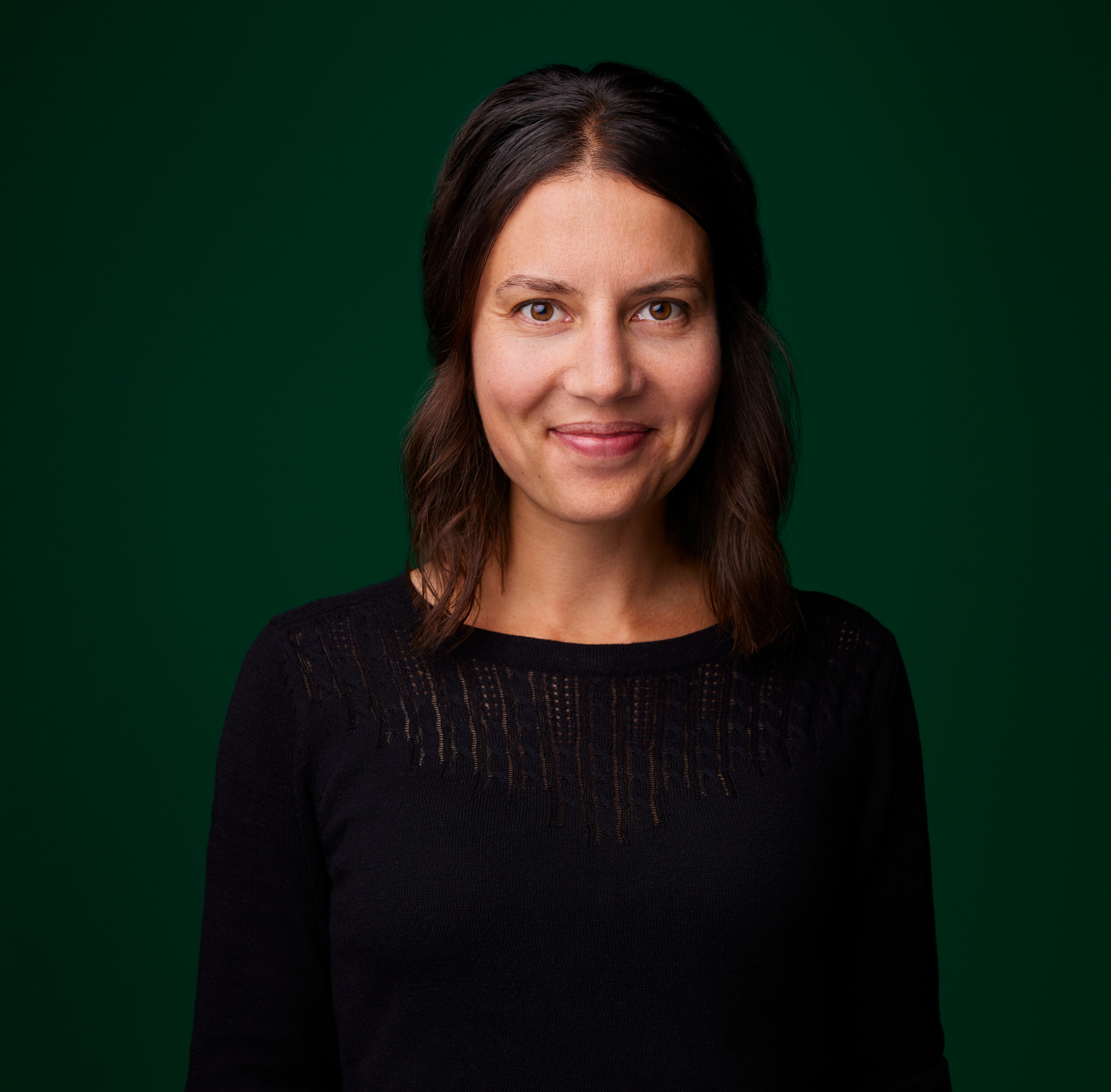2023 Alumni Horizon Award: Hannah O’Rourke
Gillian Rutherford - 10 October 2023

Hannah O'Rourke, ’08 BScN(Hons), ’15 PhD (photo credit: Ryan Parker)
At age three, Hannah O’Rourke started begging her parents to let her play the violin. They finally relented when she was still asking at six and a half. Thus began her lifelong passion for playing the violin, a pursuit that involved tireless attention to detail in order to create beautiful music.
When it came time to choose a career path, O’Rourke picked nursing over music, but it’s no surprise that music is at the heart of at least one of her research projects.
Her research program, which focuses on social isolation among older adults living with dementia, was inspired by her experiences volunteering to play for care home residents, her relationships with her own grandparents and her doctoral research, which made her acutely aware of the need for social connectedness to promote quality of life. In partnership with the Edmonton Symphony Orchestra, she developed a program called Music Connects Us to bring professional musicians into long-term care homes to co-create music with the residents.
“It’s a group activity intervention, where the idea is that if you can get people together to participate in something that’s a meaningful activity, and which promotes meaningful interactions, it can be a way to address loneliness,” explains O’Rourke.
It’s estimated that half of people over the age of 60 are at risk of social isolation and a third will experience some degree of loneliness later in life, issues that were underscored and made worse by the COVID-19 pandemic. O’Rourke’s research projects have attracted funding from the Canadian Institutes of Health Research, the Institute for Continuing Care Education and Research, the University of Alberta, the Alzheimer Society Research Program, and the Public Health Agency of Canada.
“I cannot help but notice the centrality of relationships to my own quality of life,” O’Rourke explains. “My experiences of relationships — as a friend, wife, daughter, granddaughter, sister, mother, colleague, etcetera — prompt daily reflection upon what we know (and do not know) about effective, accessible opportunities to promote feelings of social connectedness among people living with dementia in care homes.”
“My values influence the ideas tested in my research studies. What I learn from the research also influences my values.”
It’s this blend of the practical with the scientific method for the benefit of patients that hooked O’Rourke on research. After working as an RN at the Cross Cancer Institute and in home care for a year, she was lured back to the U of A to do her PhD. After completing a postdoctoral fellowship at Toronto Metropolitan University, she was hired as a U of A faculty member in 2017.
“Nursing in a clinical environment is a really intense, difficult job and I loved many aspects of clinical nursing. But I like having the time to think and ask questions and work through problems over years instead of minutes,” she says. “As nursing researchers, we ask questions that have very practical implications for patient care.”
O’Rourke points out that her work focuses on assessment and evaluation, much like clinical nursing work does. Each research question is carefully considered, with input from patients and their families, in order to define the problem that needs to be solved long before an intervention is designed. Once an intervention is implemented, results are carefully evaluated to ensure the goals are met, not only from a scientific point of view but in terms of patient satisfaction.
She was also asked to take on the role of academic co-ordinator for the Faculty of Nursing Honors Program, which she readily accepted. It’s a competitive program that exposes undergraduate students to hands-on research. As one of the first students who took the program herself, O’Rourke has come full circle.
She loves mentoring the undergrads and introducing them to the possibilities presented by nursing research. Many are surprised to learn it is not a solitary pursuit but instead relies on the same teamwork skills required for bedside nursing.
“They get embedded in a team and contribute to a team research project and experience the messiness of actually doing research,” she says.
O’Rourke counsels the students on how to set boundaries and work-life balance, but also how to take advantage of opportunities that come along.
“I love being able to support undergraduate students to open their perceptions of how diverse a nursing career can be,” she says. “Things have gone best for me when there’s been an opportunity, something that interested me, and I followed it.”
Two other U of A nursing grads have been honoured with a 2023 Alumni Award: Mona Lisa Bourque Bearskin and Reagan Bartel. Learn more about other award recipients and the Alumni Award ceremony on Oct. 25.